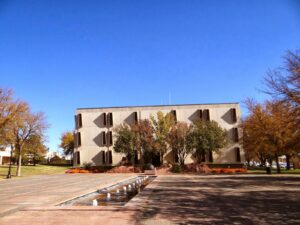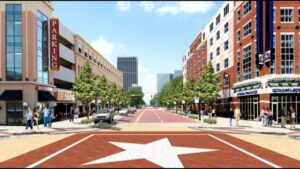My cheap-seat perch has enabled me to weigh in on a matter involving a community where I lived for 23 years and remains a place where I maintain a deep affection.
Amarillo City Hall is going to trial Tuesday to face a lawsuit filed by a local businessman over a city effort to foist a $260 million debt on property owners to build a new Civic Center. I use the term “foist” understanding what it implies.
The city is foisting the debt on taxpayers because those very city residents said “no” to a bond issue in November 2020 that would have done what the city wants to do without voter approval.
There is something fundamentally wrong with that approach.
Businessman Alex Fairly wants the 108th District Court in Potter County to slow the process down just a bit to enable all parties — I’ll presume Fairly intends for the city to be included — to present their cases more thoroughly. The city, according to Fairly, wants to fast-track the decision to a quick verdict.
Fairly is contesting the legality of the decision to issue those “anticipation notes.” He argues that the city didn’t give proper advance notice to residents and did so without going through the entire process he says is required.
I won’t argue that case. What does seem wrong is the timing of this effort by the city.
To be clear, if I had a vote in the matter, I likely would have voted “yes” on the money to build a Civic Center; the one they have is no longer adequate. However, most voters turned thumbs down on the project. I tend to respect the view of the majority … you know?
The City Council’s response has been tantamount to sticking its finger in the eye of electorate, telling them: We don’t care what you think. We need to do this anyway and we’re going to go around you … no matter what.
Therein lies what I believe is the crux of the argument that Fairly is trying to make.
This legal challenge represents a significant departure from the way city government has operated in Amarillo for practically as long as I have been acquainted with the city and its leadership.
This can be a healthy challenge to the city’s power structure. I want it to be a constructive one as well.







